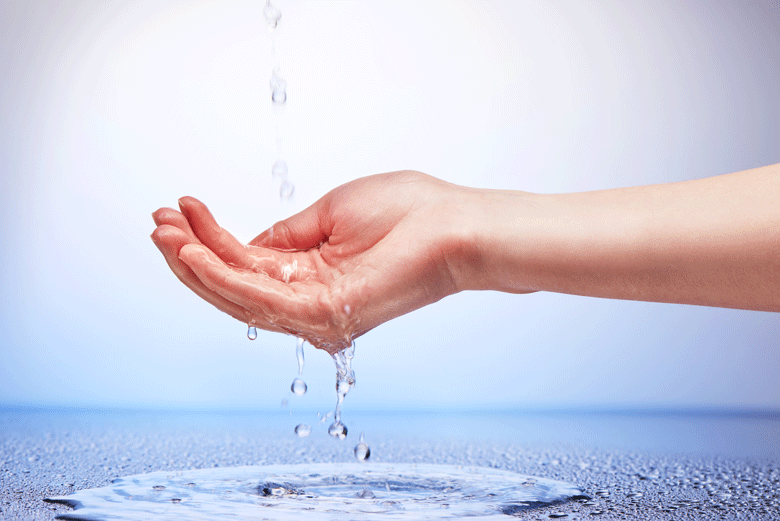

The UAE economy is expected to experience some of the strongest growth in the developed oil-exporting Middle East and North Africa (Mena) region. This is thanks to higher oil prices, infrastructure spending, stimulus packages, friendly reforms, new investment laws and robust growth in non-oil sectors.
Beyond the think tank headlines, however, there is a need to look closely at the resources at hand.
We know that with economic growth comes rising expectations among populations, leading to a greater demand for water.
This increasing demand for the Earth’s most precious resource could ultimately stall economic momentum unless industries commit to smarter water management, and instil this imperative from top to bottom – bridging the gap between corporate goals and capabilities.
UAE demand
The UAE has one of the highest consumption rates of water per capita with residents using 550 litres of water a day compared with the international average of 170-300 litres. This level of consumption could result in a binary opposition, with the potential to jeopardise the country’s pace of growth.
 Unless more sustainable methods of water management are established at both corporate and individual levels, the burgeoning growth of the UAE’s non-oil sectors will increase the strain on the nation’s limited water resources.
Unless more sustainable methods of water management are established at both corporate and individual levels, the burgeoning growth of the UAE’s non-oil sectors will increase the strain on the nation’s limited water resources.
Tourism, construction, manufacturing and the services sectors all require prodigious amounts of water. By 2030, global demand for water is forecast to surpass available supply by 40 per cent. During the same period, the total annual demand in Abu Dhabi could grow by 123 per cent as the city’s anticipated demand for water rises to reach approximately 5,000 million litres annually.
The UAE Water Security Strategy 2036, unveiled by the Ministry of Energy & Industry in 2017, aims to ensure sustainable access to water during both normal and emergency conditions.
Due to the UAE’s arid, desert climate, which averages less than 100mm of rainfall a year, desalination is the primary source of potable water, with only 1.2 per cent of the water present in Dubai emanating from the ground.
Unsurprisingly, the UAE is the world’s second-largest market for water desalination technology – accounting for 14 per cent of all desalinated water produced globally and holding the world’s largest desalinated water reservoir in Abu Dhabi. However, this reliance on energy-intensive desalination processes cannot be considered a long-term solution to water scarcity due to the negative environmental impacts of the emissions it creates, not least of which is the discharge of brine into the sea, which incrementally raises the sea’s salinity and poses a danger to marine life.
The UAE Water Security Strategy 2036 includes sustainable methods to meet demand, including the goal of increasing the reuse of treated water to 95 per cent of all water use. The country is also working to promote the use of treated sewage effluent in industrial processes.
Emerging tech
Digital technologies will play a key role in enabling the industries to recycle and reuse water to ensure a sustainable water future.
Emerging technologies offer predictive data analytics to help companies improve visibility into their water use and also provide greater opportunities to reduce, reuse and recycle water to lower overall water consumption.
 Ecolab’s 3D Trasar water management technology is designed to monitor water quality in industrial settings and adjust chemistry levels and has been used, as an example, to recycle wastewater in the cooling system of one European chemical plant to reduce its potable water demand by 65 per cent.
Ecolab’s 3D Trasar water management technology is designed to monitor water quality in industrial settings and adjust chemistry levels and has been used, as an example, to recycle wastewater in the cooling system of one European chemical plant to reduce its potable water demand by 65 per cent.
In a less industrial but just as water-consuming setting, Ecolab’s Apex Warewashing system is aimed at helping food and beverage outlets to better optimise their washing cycles, reducing water consumption by up to 10 per cent.
There are increasingly also free tools for organisations and businesses to better understand and mitigate their water consumption. Smart Water Navigator is an online assessment provided by Ecolab that helps businesses understand their water performance and become more ‘water smart’ in its management.
Water is a necessity, and all of us should rethink the way we manage water and take proactive steps to safeguard our limited water resources. It is not only a matter of being more environmentally conscious, but has now evolved into an urgent need for change, prompting more serious calls to action.
Ecolab as an organisation is aiming to conserve 1 trillion litres of water annually by 2030, equalling the annual drinking water needs of more than 1 billion people, by reducing water consumption within our own and our customers’ operations. As the UAE strives to become one of the most innovative nations in the world, it is important that the country, its neighbours and all those in the wider, water-scarce Mena region also work innovatively to tackle water scarcity to ensure long-term prosperity.
About the author
 Arjan Boogaards is senior vice-president for the Middle East and Africa at Ecolab
Arjan Boogaards is senior vice-president for the Middle East and Africa at Ecolab
You might also like...

Contractors win Oman Etihad Rail packages
23 April 2024

Saudi market returns to growth
23 April 2024

Middle East contract awards: March 2024
23 April 2024

Swiss developer appoints Helvetia residences contractor
23 April 2024
A MEED Subscription...
Subscribe or upgrade your current MEED.com package to support your strategic planning with the MENA region’s best source of business information. Proceed to our online shop below to find out more about the features in each package.





